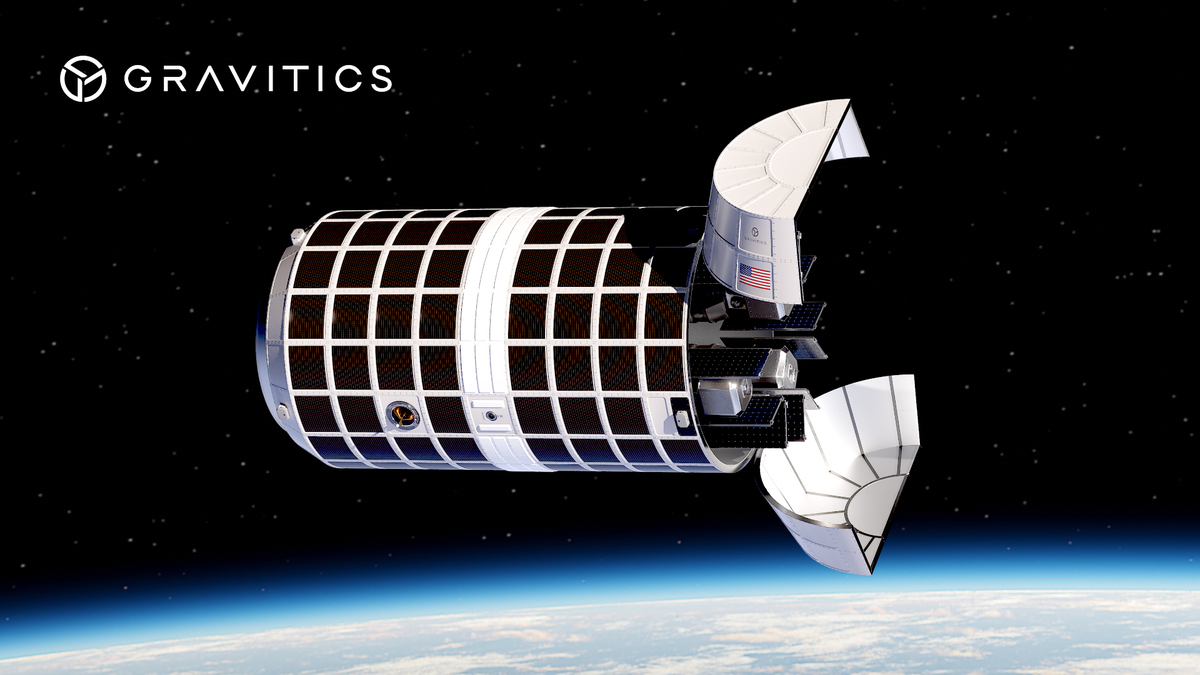The battle for orbit is on. The US wants to consolidate its dominance in orbit within a few years
The United States Space Force has selected a trio of contractors for an ambitious plan to deliver key military equipment into orbit, as early as the 2030s. Contracts worth a total of $13.7 billion were awarded to SpaceX, United Launch Alliance and Blue Origin. Other projects have also been announced, including a new way to put a station into orbit capable of rapid response by launching a series of specialised defence satellites. Washington acknowledges that the latest investments are aimed at maintaining its orbital dominance in the face of the rapid advance of its biggest space conquest rival – China.

Nearly $14 billion spread among the three largest private space launch companies has been earmarked by the US government for the modern space race. This time it is not about conquering planets or sending crews beyond our atmosphere, but about warfare high above our heads. In recent years, orbit has increasingly been targeted not only by communications and surveillance satellites, but also by those capable of damaging or destroying potential targets in near space. Some are managed by the world's space authorities as part of a clean-up of the rapidly increasing space debris, but others are sent by the powers that be in an attempt to demonstrate their combat capability in this environment.
The U.S. will rely on SpaceX, United Launch Alliance, and Blue Origin to launch heavy military surveillance and combat satellites into orbit. The initially dominant position of United Launch Alliance, a joint project of Boeing and Lockheed Martin, has been weakened over time by the development of the Falcon 9 and Falcon Heavy rockets by SpaceX. Following the success of a lawsuit over bidding for military projects a decade ago, SpaceX has won over 40% of all space missions awarded by the Pentagon. In this latest wave, Musk's company has already won a majority. The first currently announced programmes are expected to be operational in five years.
"A robust and resilient space launch architecture is the foundation of both our economic prosperity and our national security," said U.S. Space Force Chief of Space Operations General Chance Saltzman in unveiling the new acquisitions. "The National Security Space Launch (NSSL) program is a strategic necessity that provides critical capabilities in space that our troops depend on to fight and win." U.S. Air Force Deputy Under Secretary of the Air Force for Space Acquisition and Integration Major General Stephen Purdy emphasized the critical role of space dominance in national security. "America leads the world in space launches, and through these NSSL Phase 3 contracts we will ensure continued access to this vital domain. They strengthen our ability to launch critically important defense satellites while strengthening our industrial base and increasing operational readiness," Purdy said in a statement.
Prepare. Ready. Commit. Space Force Generation, or SPAFORGEN, is the driving force behind the @SpaceForceDoD’s dominance in the space domain. Make no mistake – Guardians are both ready today and developing to meet tomorrow’s threats. #SemperSupra pic.twitter.com/bWZj7dlPTo
— General Chance Saltzman (@SpaceForceCSO) March 30, 2025
The US and China are in the competition for dominance in orbit. In recent years, the latter has boasted a number of space launches with rockets also carrying security and defence satellites. Although there has been no official clash, the two geopolitical rivals are preparing for one, and US officials admit that Washington may have underestimated Beijing in this regard. The risk of the Chinese shooting down a satellite in orbit exists, according to Space Force officials, who warn of possible global repercussions. The agency estimates that hundreds of Chinese satellites are currently tracking U.S. ones and are capable of reporting real-time information. Meanwhile, the Space Force says U.S. lawmakers don't yet understand the growing importance of these operations.
"It's still a low priority in terms of the political regime. A modern battlefield must also take space into account. If we can't continue to protect this domain and we can't defeat an adversary here, any of the other domains will become a military target," General Saltzman warned at the U.S.-China Affairs Commission hearing, adding that so far, he believes there are more such missions awaiting necessary investments than those that already have funding approved.
One of those subprojects that has already been granted funding, specifically $60 million, is a launch platform project called the Orbital Carrier by Gravitics. "The Orbital Carrier is designed to pre-position several maneuverable space satellites that can quickly respond to threats in orbit. This ship will provide the U.S. Space Force with unprecedented flexibility and speed for operations in space, which will greatly enhance space defense," the developer said in describing its orbital station under development. It is the equivalent of a space aircraft carrier that will have multiple ways to intervene in the event of a threat in orbit. The ship would thus be able to deploy new satellites if their predecessors are damaged or destroyed, or to block various types of attack, including potential laser dazzling of the optics on key surveillance satellites.









